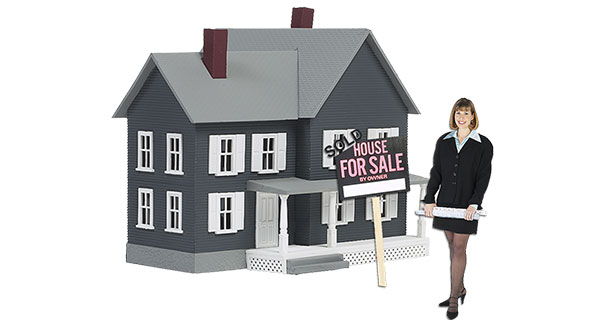MLS home sales in Canada dropped 9.1 per cent in February from January, reaching the lowest level since November 2012, according to a report released Friday by the Canadian Real Estate Association.
The month-over-month decline was the largest recorded in Canada since the introduction of the mortgage stress test in January 2018.
“The number of homes trading hands was down from the previous month in three-quarters of all local markets, including all major cities,” reported CREA.
Sales in Canada were the lowest level for the month of February since 2009 and almost 12 per cent below the 10-year February average.
“For aspiring homebuyers being kept on the sidelines by the mortgage stress-test, it’s a bitter pill to swallow when policy makers say the policy is working as intended,” said CREA president Barb Sukkau. “Fewer qualified buyers means sellers are affected, too.”
“February home sales declined across a broad swath of large and smaller Canadian cities,” said Gregory Klump, CREA’s chief economist. “The housing sector is on track to further reduce waning Canadian economic growth. Only time will tell whether successive changes to mortgage regulations went too far, since the impact of policy decisions becomes apparent only well after the fact. Hopefully policy-makers are thinking about how to fine-tune regulations to better keep housing affordability within reach while keeping lending risks in check.”
The national benchmark price fell by 0.13 per cent from the year before to $615,300. It was down 4.41 per cent in Calgary to $409,800 and dropped by 4.49 per cent in Edmonton to $315,700.
CREA also released an updated forecast for the market predicting MLS sales in Canada would fall by 1.6 per cent this year to 450,400 transactions but then rise by two per cent in 2020 to 459,400 sales. In Alberta, MLS sales are expected to fall by 5.6 per cent this year to 50,200 followed by a hike of 5.4 per cent in 2020 to 52,900.
The national average price is expected to drop by 0.2 per cent this year to $487,000 and then rise by 0.8 per cent in 2020 to $490,800. In Alberta, the average sale price is expected to decline by 2.5 per cent this year to $377,700 and fall again by 1.2 per cent in 2020 to $373,100.
“Looking ahead, we will simply repeat almost verbatim what was said a month ago. There are at least two very important supportive factors for the market. First, and perhaps most crucially, is that it now appears that the upward march in interest rates has not only paused but could even reverse. With long-term bond yields dropping more than 80 bps from last fall’s peak, the heat is truly off. Second, demand factors remain robust, as population growth shows little sign of abating, a powerful driver for Ontario in particular. Also, there is even a dash of light for Alberta, with global and Canadian oil prices rebounding smartly from last year’s depths. Finally, even next week’s Federal Budget may have some modest measures which could provide some support for sales in the year ahead,” said Doug Porter, chief economist with BMO Financial Group.
“The Canadian housing market cannot be readily summarized with both unusually harsh February weather at work as well as such extreme regional differences still at play. However, we continue to contend that prices, sales and building are likely to hold broadly stable nationally in 2019 amid the many moving parts for the market, even with the soft start to the year.”
Mario Toneguzzi is a Troy Media business reporter based in Calgary. He writes for Calgary’s Business.
The views, opinions and positions expressed by columnists and contributors are the author’s alone. They do not inherently or expressly reflect the views, opinions and/or positions of our publication.


